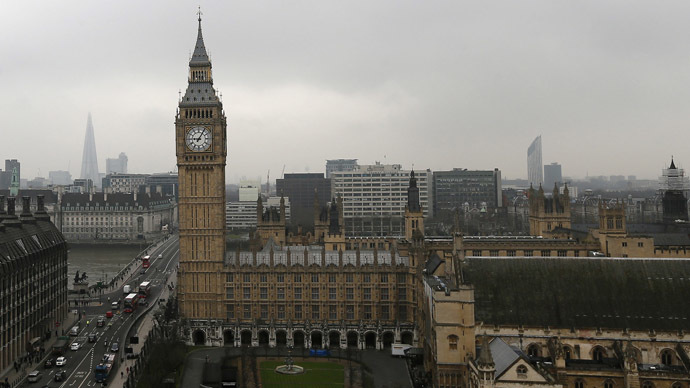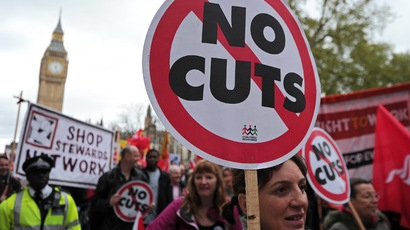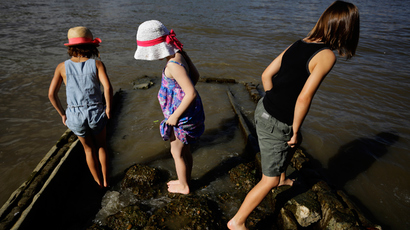British MPs want 11% pay rise, but refuse expenses cut

UK politicians are resisting a proposal by a watchdog to raise their salaries by 11 per cent in exchange for their expenses. MPs want to cling onto their perks which include hotels, free tea and biscuits and the installation of TVs in second homes.
The Independent Parliamentary Standards Authority (IPSA) has
proposed a wage increase of £7,000 ($11,289) for members of
parliament on the condition they sacrifice their tax payer-funded
allowances. The 11 percent raise would boost politicians’
salaries to £74,000 ($119,000) a year.
The IPSA found that last year the expenses cost UK taxpayers
£161,000 ($260,000) which works out at around £250 ($400) per MP
just for those perks the authority considers excessive.
The perks that MPs currently enjoy include:
£15 meals when parliamentary debates continue after 7pm
Free tea and coffee
Free accommodation in London hotels before 1am
Insurance for a second home
Installation of a television in a second home
Free taxis home
However, MPs have dug their heels in and complained that
professionals such as doctors, lawyers and policemen claim
expenses and therefore MPs should have the same right. They
believe they should be compensated for "regular unsocial hours or
residence away from home.”
"We find it hard to believe that employers in other sectors
would expect their employees to wait until 0100 before booking a
hotel," said an official letter by parliamentarians to the
IPSA.
As for the ban on the installation of a television in a second
home, MPs strongly opposed the idea, maintaining that they need
to be informed and “consider access to media and the Internet
when residing away from home is a legitimate business
expense.”
The 11 percent pay rise is likely to go through in the coming
weeks, despite resistance from the country’s leaders.
“MPs' pay is a matter for IPSA. The prime minister's view is
that the cost of politics should go down, not up,” Prime
Minister David Cameron’s spokesperson told reporters Tuesday.
Given the current economic downturn, the UK government could face
protest if they are seen to be increasing politicians’ salaries.
‘Deepest recession since WWII’
The financial crisis has hit the UK hard, with a recent survey by
the Institute for Fiscal Studies claiming it is embroiled in the
worst recession since WWII.
Between 2010 and 2011, 70 percent of employees who stayed in the
same job faced real wage cuts, while one-third of those workers
faced nominal wage freezes or cuts (12 percent experienced
freezes and 21 percent had their wages cut).
In addition, the financial pinch has increased the number of UK
children living in relative poverty by 1.5 million since the
1960s. A report titled “Great Expectations,” by the National
Children’s Bureau, revealed that now 3.5 million children were
living below the breadline.
In response to worsening living conditions in the UK, the
Red Cross has begun formulating an emergency food
aid plan to help the country’s most needy. The is the first time
it has carried out such an initiative in the country since WWII.














